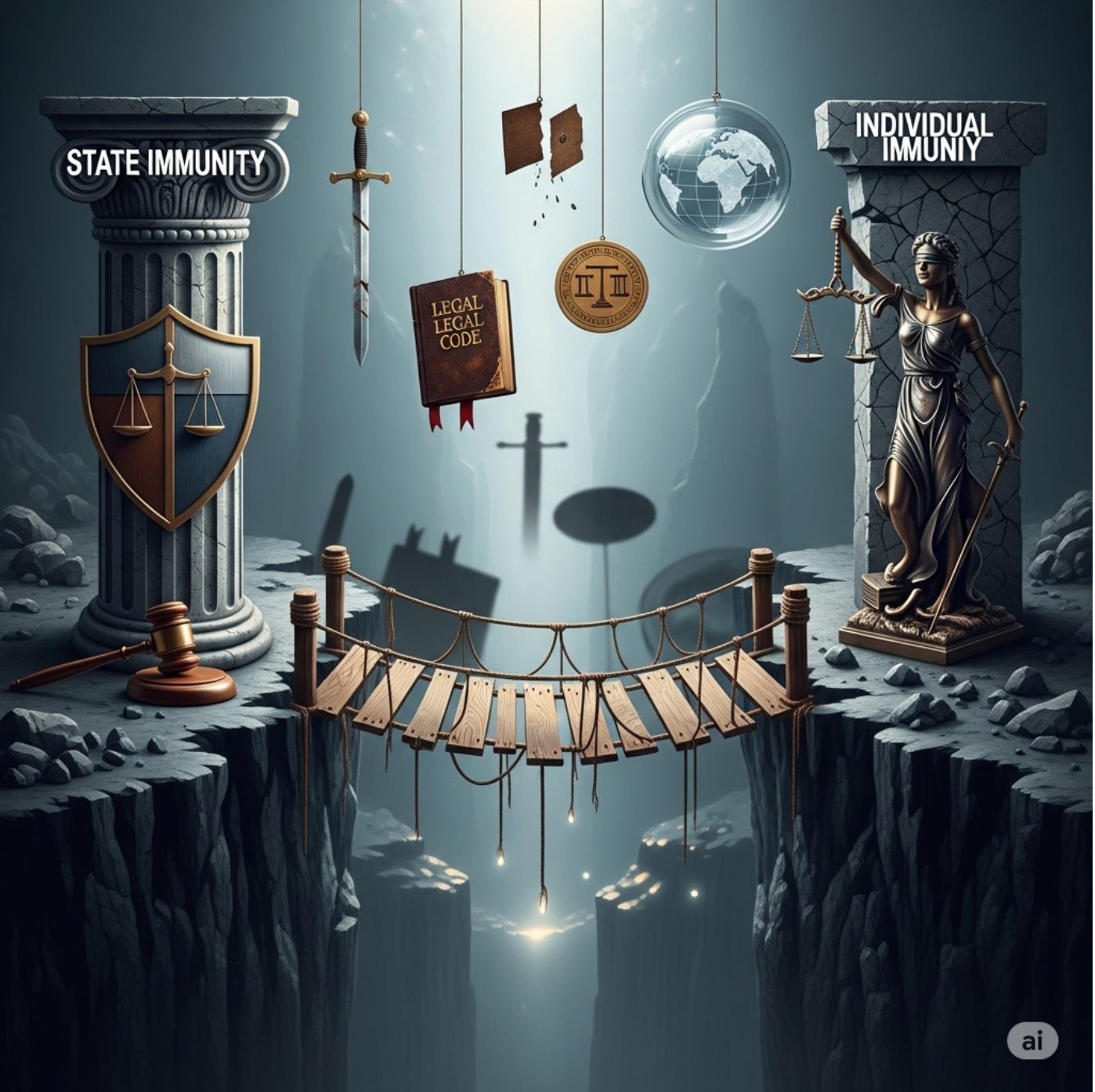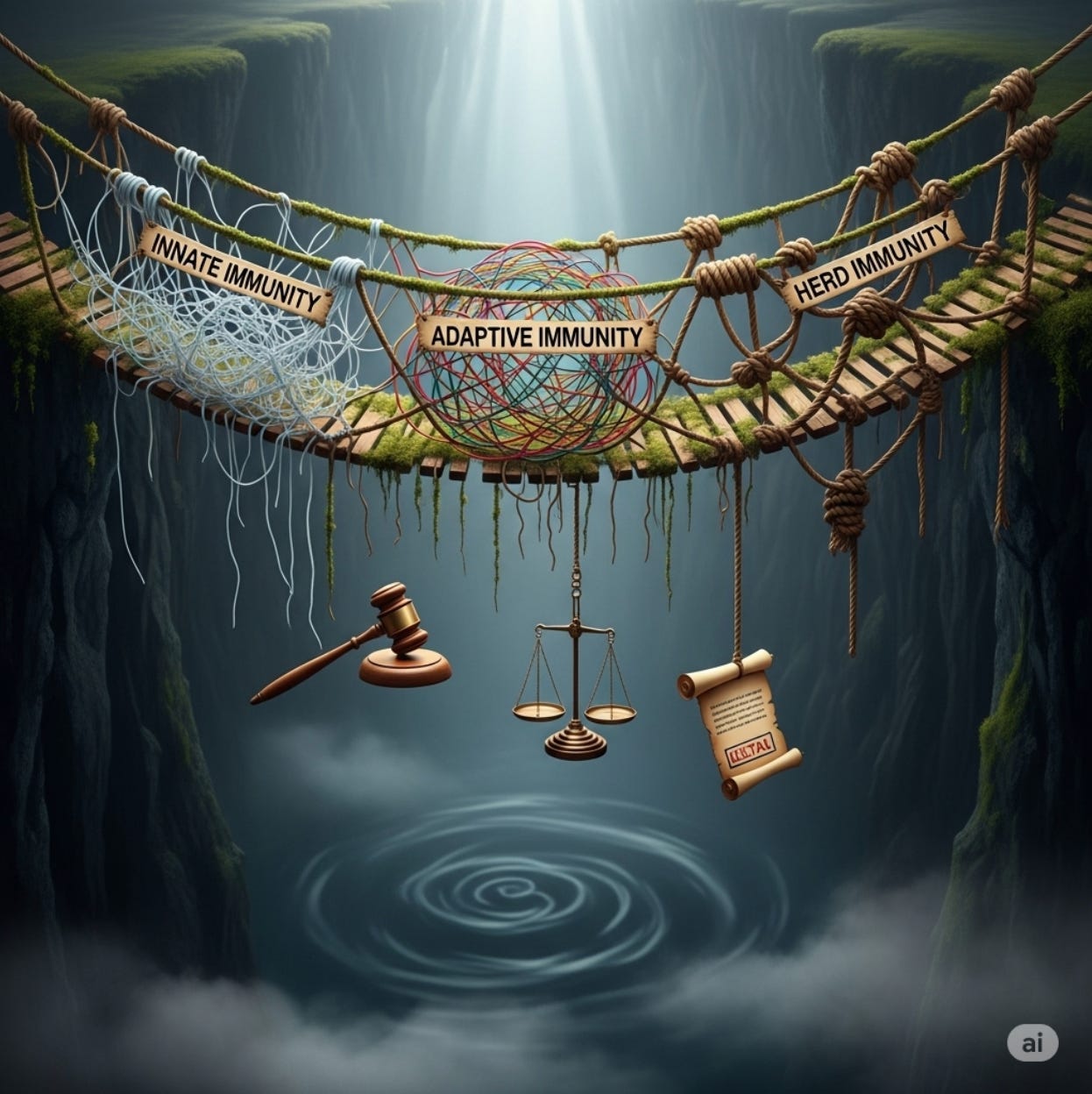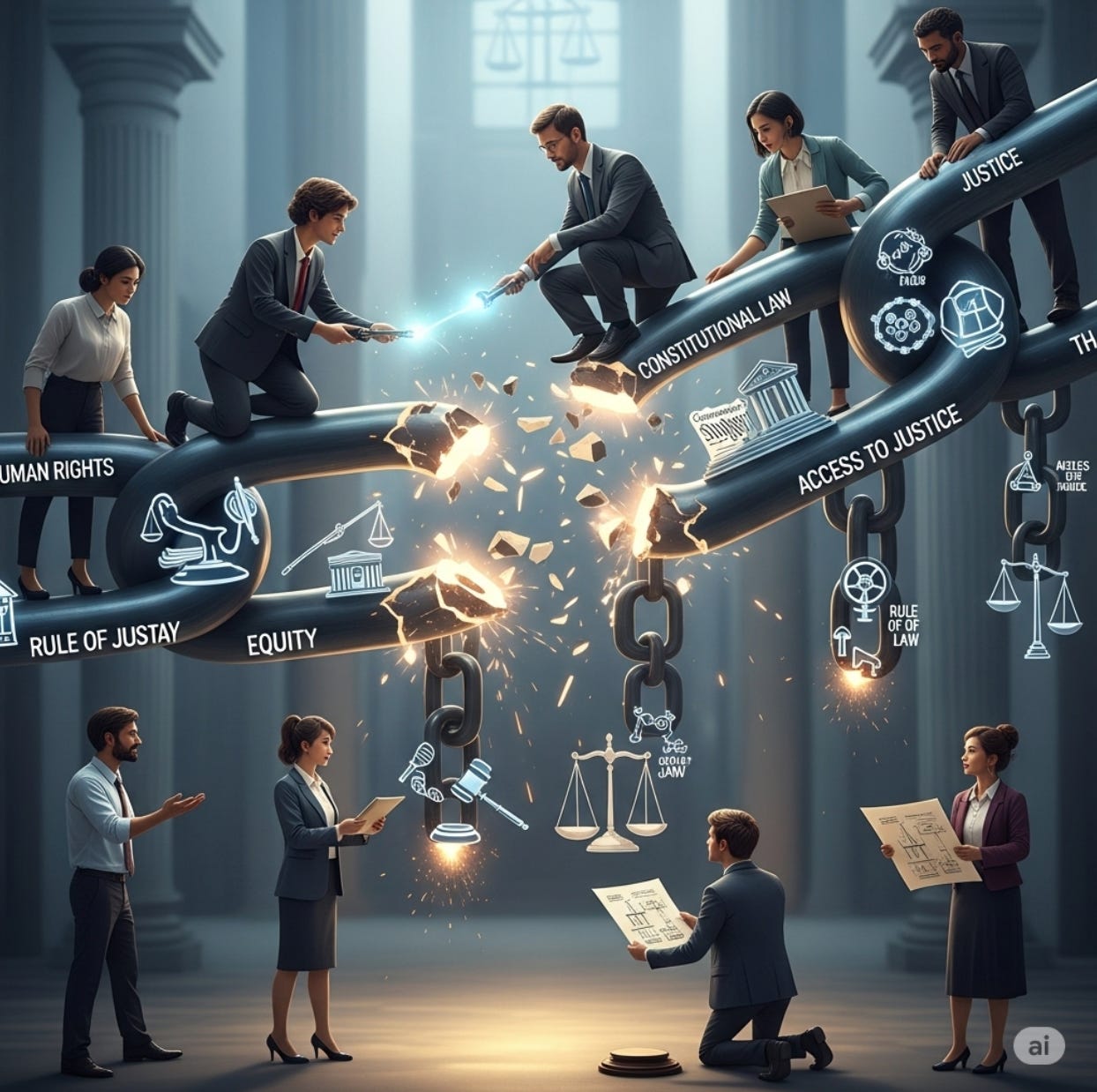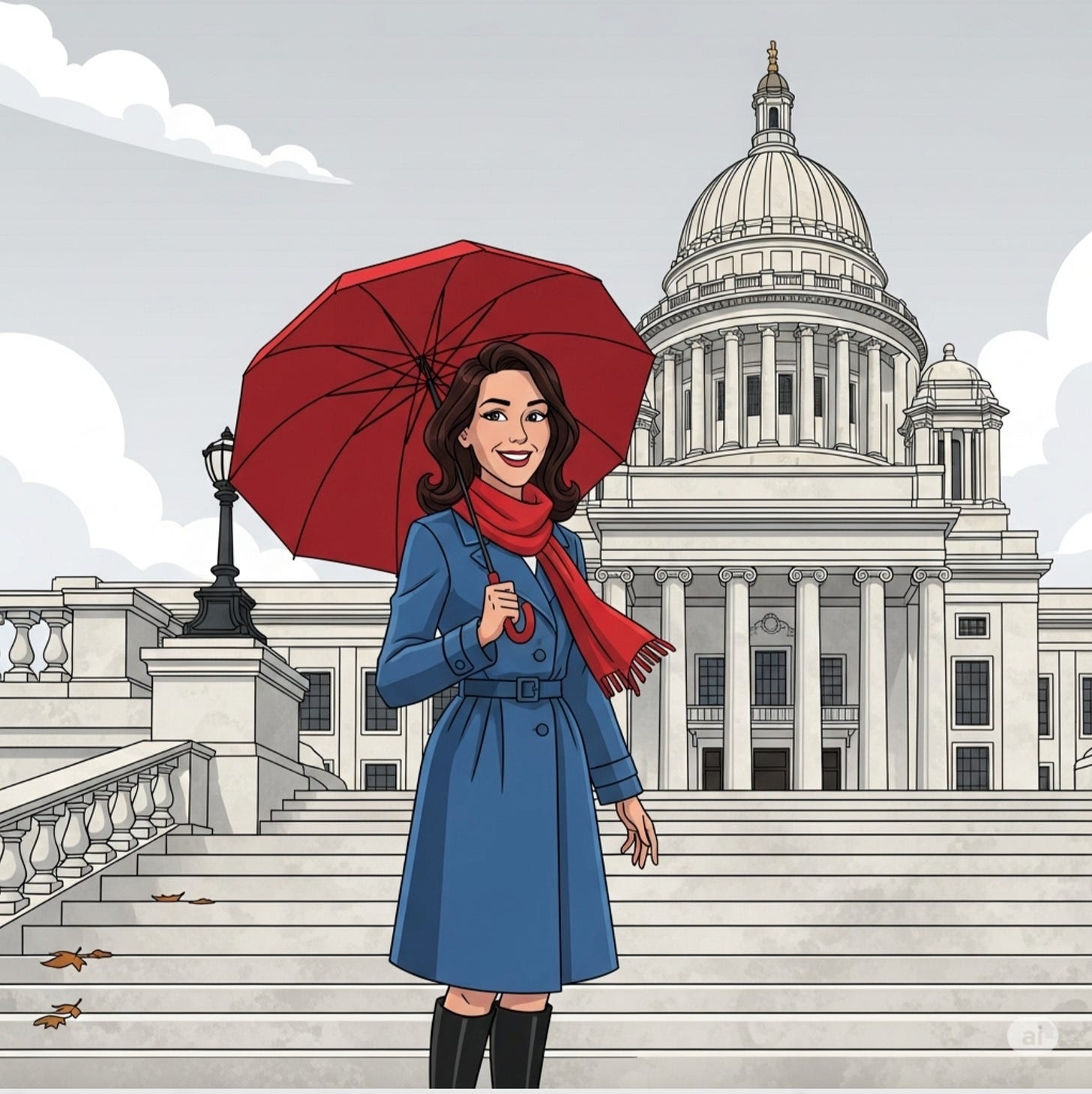A Legal Analyst of a Political Whore
For years, a sense of deep unease has lingered over the American justice system, fueled by the persistent feeling that a fundamental principle is eroding: that no one, regardless of their position, is truly above the law. This anxiety has been a constant in legal reform movements, with a quiet frustration that courts have repeatedly sidestepped the very issues that would hold officials accountable. We see this tension in the push to change local laws and the battles over national legal doctrines. But this quiet frustration has now turned into a thunderous alarm, as a recent Supreme Court decision has brought the issue of immunity into a blindingly sharp and perilous focus.
This article, which will serve as the basis for a podcast and a Substack on the intersection of legal analysis and political commentary, seeks to connect the dots between these seemingly disparate issues. Our journey into this topic began with an academic article on the "obvious violation exception" to qualified immunity. The doctrine, which protects officials from lawsuits unless they violate a "clearly established" right, has long been a source of public frustration. The article explored the idea that some actions are so egregious that a reasonable official shouldn't need a precedent to tell them it's illegal.
But for years, courts have been hesitant to embrace this kind of accountability, leaving the public to wonder if justice would ever prevail. This frustration is not limited to the federal level. It echoes in statehouses across the country, as seen in the push to repeal Rhode Island’s Law Enforcement Officers' Bill of Rights (LEOBR). Critics argue that the LEOBR creates an expanded shield for police officers, offering them special legal protections that, in effect, act as a form of immunity, putting them beyond the reach of public scrutiny and disciplinary action.
The debate in states like Rhode Island is a direct manifestation of the public's demand to close the legal loopholes that protect government actors at the expense of citizen accountability. This is a story about the long shadow of immunity, a narrative that connects the local statehouse to the highest court in the land, all while revealing a public that is increasingly skeptical and frustrated with a system it feels is designed to protect the powerful.
A Presidential Parallel: The Supreme Court's Immunity Ruling
The most profound and alarming example of this trend came from the highest court in the land. When the Supreme Court took up the case of presidential immunity, there was a sense of dread that they would either delay the matter or, worse, rule in a way that granted the president too much power. Many believed they would avoid making a decisive statement on the issue until after the election. What the Court did instead was something that critics argue is far more dangerous.
As the Brennan Center article powerfully details, the Court did not just delay the trial; it issued a decision that granted a president "complete immunity" for all "official acts," with a new, vague, and unworkable test to define what an "official act" actually is. The majority opinion states that a president's conversations with the Department of Justice, for instance, are absolutely immune. By doing this, the Supreme Court, for the first time in history, established that a president is not subject to the same laws as every other citizen when acting in their official capacity. The court’s decision gives a president a "blank check" to use the powers of the office for corrupt ends and creates a "manual for future lawbreaking presidents." This ruling is not just a partisan issue; it is a profound and chilling redefinition of the presidency, one that places a president in a class of their own, unaccountable to the rule of law for a wide swath of their actions.
The irony, as many have pointed out, is that the Supreme Court's reasoning for handling the case so quickly was to prevent it from interfering with the election. Yet, by creating this new legal test and remanding the case, they have all but guaranteed a massive delay. The irony is compounded by the fact that the Court’s decision, which sidestepped a clear ruling on the extreme nature of the alleged actions, comes at a time when the court itself is being criticized for overreaching its authority.
As articles from Reuters and Politico have noted, lower court judges are pushing back against the Supreme Court's recent curbs on nationwide injunctions, a power traditionally used to block controversial policies. This suggests a growing tension between the Supreme Court and the broader judiciary, with many seeing the Court's recent actions as a deliberate effort to empower the executive branch while weakening the very judicial system that is supposed to serve as a check on its power.
'The New Yorker article further argues that the Court seems to be siding with a specific political figure against the rest of the judiciary, a move that appears to be an attempt to circumvent the Constitution or, at the very least, re-interpret it in a way that aligns with a specific political agenda. This perceived lack of transparency from the courts, and the public's subsequent reliance on "hunches," mirrors the widespread distrust that exists in other areas, such as the handling of the Epstein list, where the public is left to simply believe that institutions have been fully forthcoming.
The Unfinished Work of Accountability.
The thread that connects all these issues—the academic paper on qualified immunity, the state-level battles over police protection, and the Supreme Court's ruling on presidential immunity—is the constant, unfinished struggle to reconcile the powers of the state with the rights of the people. Each of these legal battles is a front in the same war: the fight to ensure that in a democratic society, no one, from a local police officer to the head of the executive branch, can ever be considered above the law.
This brings us to a question that hangs heavy in the air, a final, unresolved paradox. The Supreme Court has previously shown that some things are just so "obvious" they can't be excused, as it did in the unanimous ruling in Taylor v. Riojas—a case where a prisoner was held in repulsive, feces-covered cells. The Court, in that instance, was willing to find that the official's conduct was a violation so obvious that a prior court case wasn't needed to prove it.
This raises a crucial question: If a case as extreme as Taylor v. Riojas came before this same court today, would they apply the same logic? Or would they use the same reasoning they applied to presidential immunity, effectively saying that without a legal test to define the "official" nature of the act, the government official is immune? It's a baffling contradiction that forces us to ponder why immunity for a president would be treated with such deference, while immunity for a police officer or a prison guard might not be. And for those seeking justice, it's a difference that makes all the difference.







